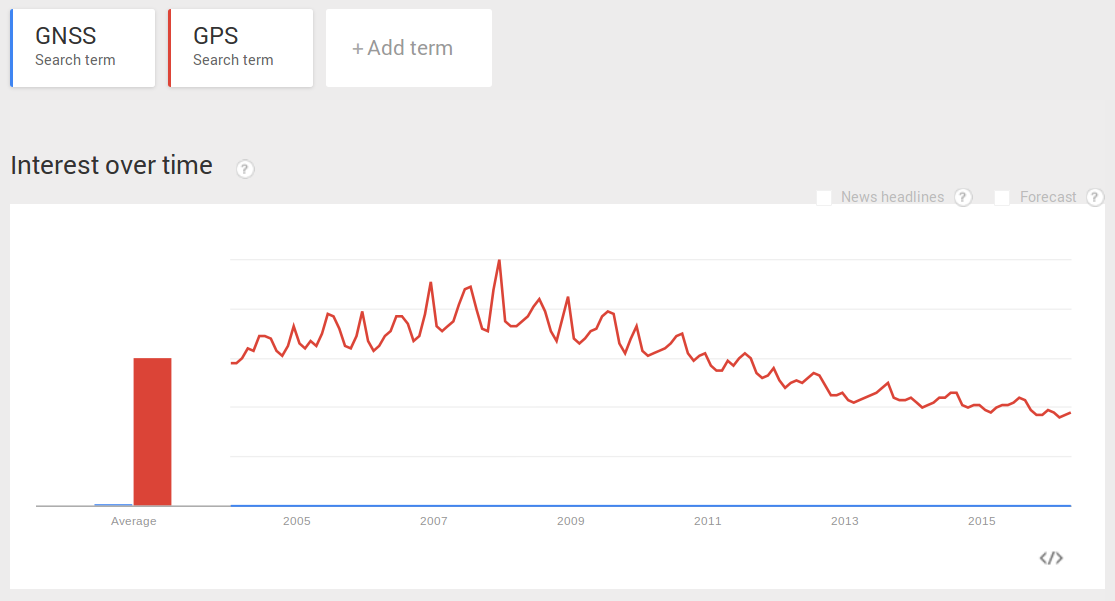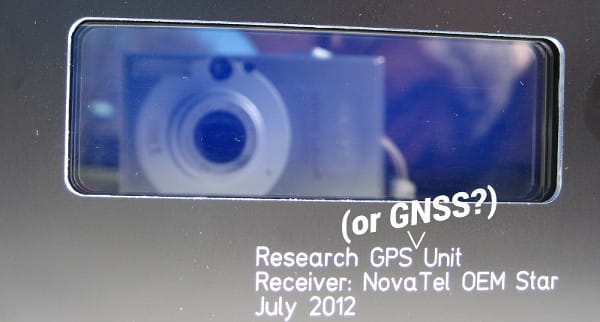"We used a GPS receiver..."
"We used a GNSS receiver..."
Writing or presenting about a topic that includes navigation systems inevitably leads to the question of names. A growing number of receivers are multi-constellation, meaning they can take advantage of more than the 24 official GPS [1] satellites orbiting the Earth, with signals available globally. Majors GNSS[2] constellations getting attention are:
Without a doubt, GPS has become to GNSS what Kleenex is to facial tissues. Look at these Google Trend search volume plots. Does anyone search for GNSS?

The word GPS conveys the desired meaning of navigation, maps, and directions likely internationally. The same cannot be said of GNSS, yet. With time, however, the discussion will become less GPS-centric and the term GNSS will become more mainstream.
The Winner is...
It depends! The goal is to communicate effectively, thus it makes sense to pick a word which conveys the concept without further distraction. In many cases this will likely mean using GPS. However, if the discussion is to a technical audience or if there is an opportunity to educate, then use GNSS or both. Unless you are talking at the Institute of Navigation GNSS+ Conference, take 15 seconds to describe what GNSS stands for, and how it relates to the familiar GPS.
This post is my 15 second description of GNSS vs GPS. The informative element of this website means that GNSS will be used more prominently. But that's ok, because you know both.

